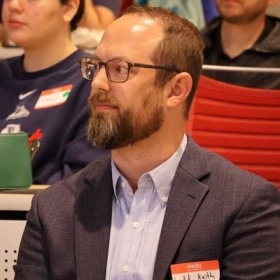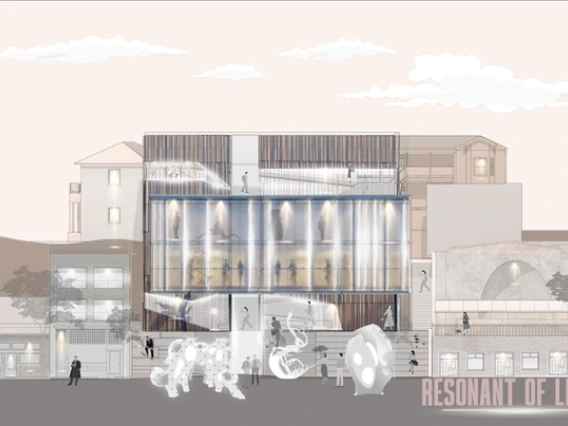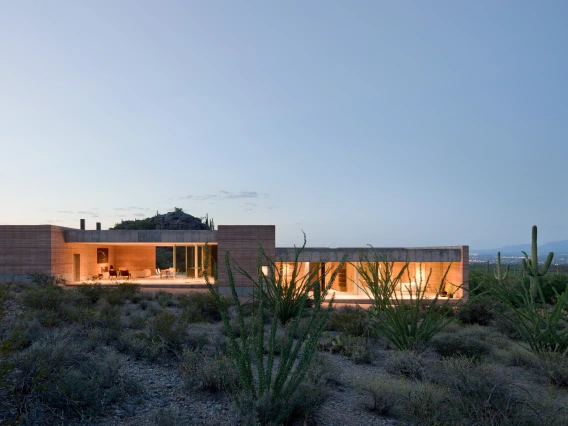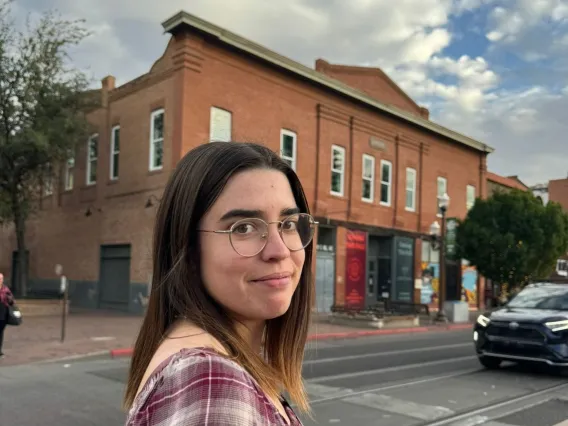The Heat Is On This Summer: CAPLA’s Ladd Keith Provides Expert Insight for Sierra Club, Vox, Global Heat Health Information Network and Others

Photo by David Mark, courtesy Pixabay.
With an expanding portfolio of heat policy and governance research, the recent publication of Plan Integration for Resilience Scorecard for Heat and last year’s publication of Planning for Urban Heat Resilience, Assistant Professor of Planning and Sustainable Built Environments Ladd Keith is recognized as a leading expert on the impacts of extreme heat on communities.

Ladd Keith, Associate Professor of Planning and Sustainable Built Environments.
As temperatures soar across the United States this summer, Keith has provided new insight for a variety of publications and news outlets.
In “The Heat Is On,” an article published June 21, 2023 in Sierra, Keith speaks to heat as the silent killer. “Heat has largely been ignored by the media, the public and the government,” he says in the article. “Which explains why we have very little national legislation that targets heat.”
Deadly extreme heat events don’t qualify for federal disaster assistance, for example. After Hurricane Katrina killed 1,800 people, “there was a massive federal policy change to make sure that we avoided another situation like that,” says Keith in the article. But there has been no similar action from the federal government following the 2021 Pacific Northwest heat wave that killed more than 1,400 people.
“Equity is a huge component of urban heat resilience,” Keith says, noting that “marginalized populations are less able to cope with rising temperatures…. Every aspect of what we work on related to urban heat resilience should focus on these most vulnerable populations.”
Read the full article in Sierra.
An article published in Vox and updated June 22, 2023, “The Texas heat wave is even worse because of its timing,” notes that extreme heat is dangerous, but extreme heat when you least expect it is even worse.
“People are worse off in early-season heat waves, and death tolls higher, when the body hasn’t had a chance to adapt to hotter weather,” notes the article. It’s particularly dangerous in areas with “ill-adapted infrastructure” because “the way we adapt to early-season heat isn’t just about physiological changes in our bodies. Behavior makes a difference too, as do policies and infrastructure that help people cope.”
The appropriate response, according to the article? “Tackling heat risk requires far more investment in heat preparedness much earlier in the year.”
Therein lies the challenge, says Keith at the article’s conclusion: “We barely have enough resources to deal with what’s occurring right now. With climate change, we’re seeing increasing frequency, intensity and duration of heat waves, so we need to adjust our response.”
In a May 31, 2023 Q&A in Smart Cities Dive, Keith addresses one extreme heat governance solution—hiring chief heat officers. But, says Keith, “[n]ot every community can afford to have a full-time chief heat officer, so what is the structure that works for smaller and medium-sized communities?”
Keith addresses that important question in the interview. “Other communities are experimenting with things like bringing together public health departments, urban planners, emergency managers—those departments that don’t traditionally talk together—and at least making connections between those disciplines that are really central to thinking about how to manage heat, both in emergency situations and long term,” he says.
Read the full interview at Smart Cities Dive.
Keith has also been featured in other venues this summer, including “Federal heat protections could prevent 50,000 injuries per year: report” in The Hill on May 25, 2023.
Additionally, Keith has recently co-authored two important contributions to the heat policy and governance conversation:
- “Creating Cool and Resilient Communities: Integrating Plans for Urban Heat Mitigation”: Global Heat Health Information Network, May 30, 2023
- “Growing Heat Hazards from Climate Change and the Urban Heat Island Need to Be Integrated Across Siloed Urban Plans. Here’s How”: The Nature of Cities, June 21, 2023
Keith, who joined CAPLA in 2009, has over a decade of experience planning for climate change with diverse stakeholders in cities across the U.S. His research explores heat planning and governance with funding from the National Oceanic and Atmospheric Administration, the Centers for Disease Control and Prevention and the Department of Transportation. He is also a faculty research associate at the Udall Center for Studies in Public Policy. In addition to founding CAPLA’s Bachelor of Science in Sustainable Built Environments, Keith teaches public participation and dispute resolution as well as climate action planning.



